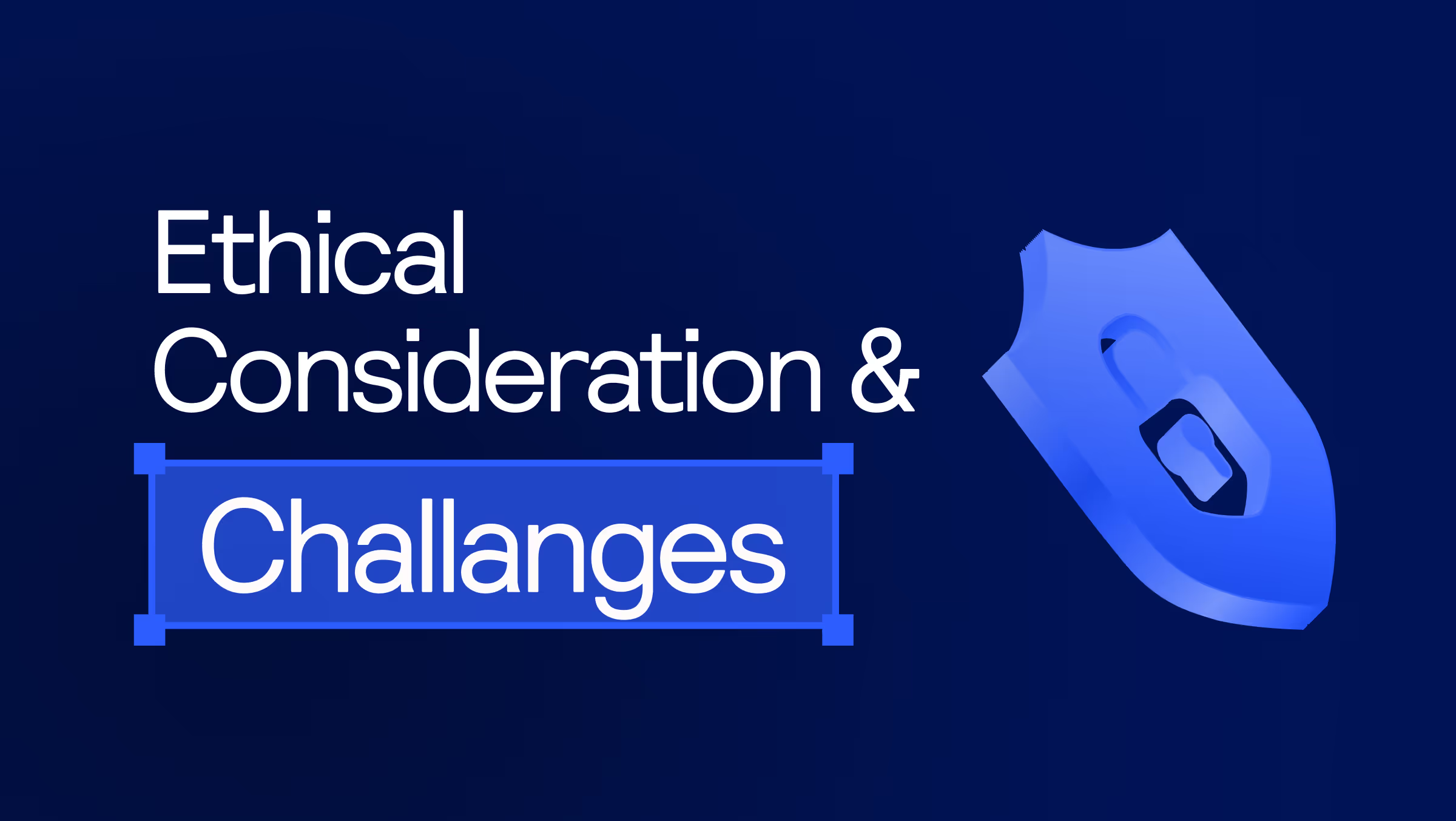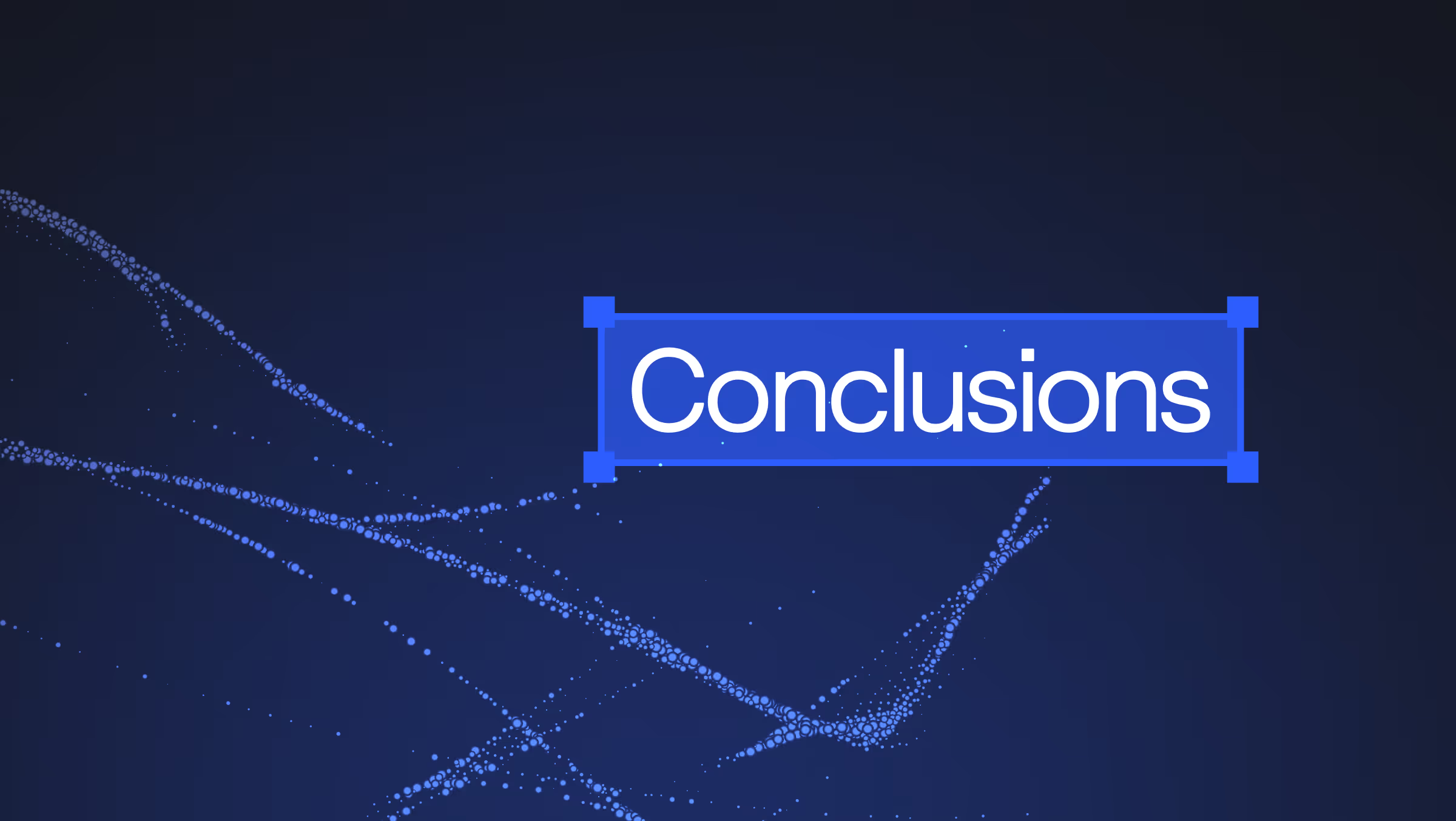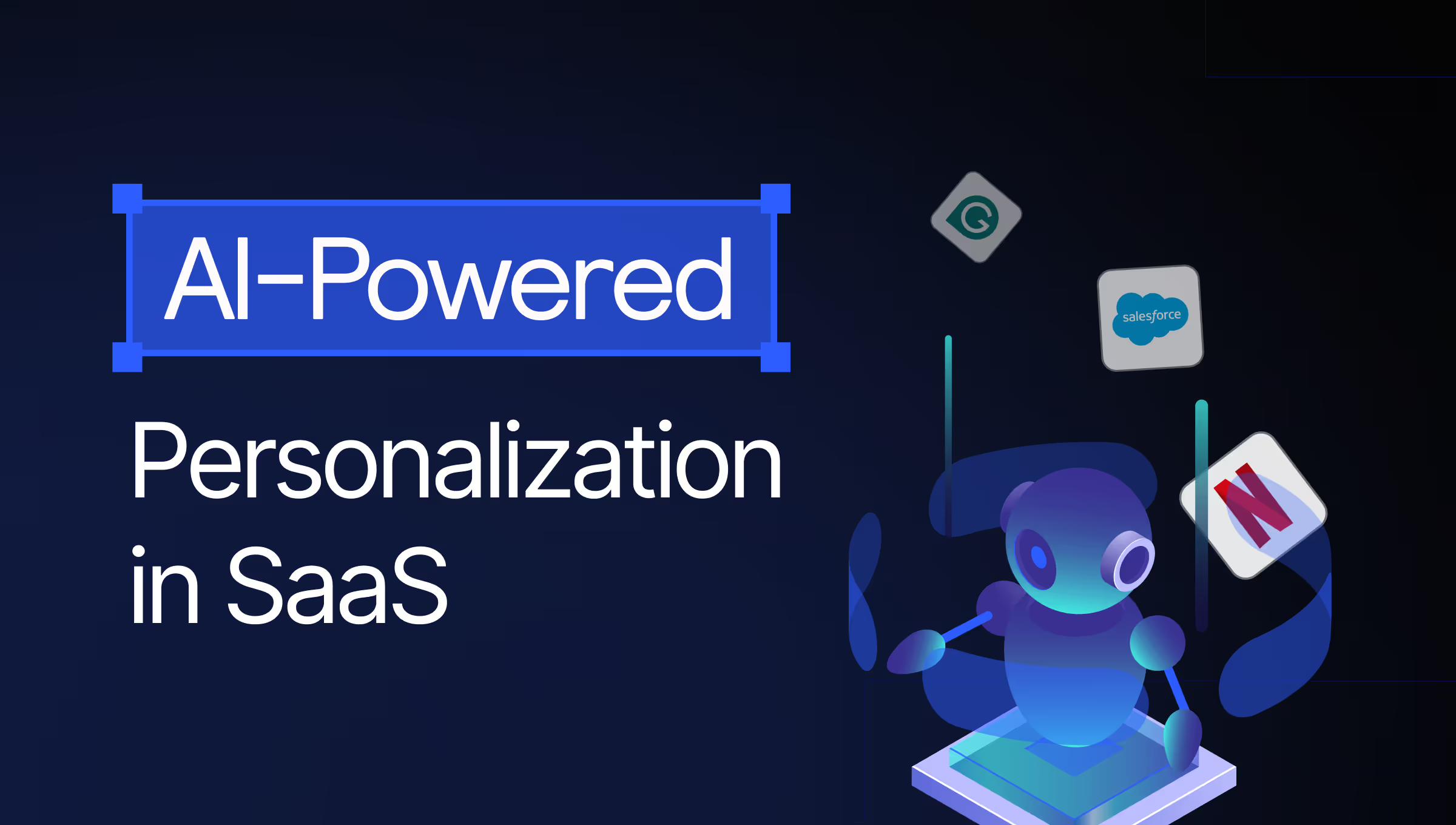AI personalization is the new game changer in SaaS. AI systems do all the heavy lifting by not only customizing content and interactions for individual users but also security. In this post we’ll get into how, the benefits and real world examples from top SaaS companies.
Key points
- AI personalization is changing the SaaS landscape by user focused experiences that increase engagement, happiness and user satisfaction.
- Machine learning drives personalization by looking at user behavior and predicting preferences. Netflix and Salesforce do this.
- SaaS + AI = more engagement, happiness and revenue. But data privacy and algorithmic bias to think about.
Understanding AI Driven Personalization in SaaS

Artificial intelligence is becoming the foundation of the SaaS industry and is changing how companies operate and interact with their users. 67% of SaaS companies say AI adds to their value proposition – that’s a big deal.
Integrating AI into SaaS platforms is not a trend, it’s a full pivot to a user centric approach, changing the way we operate and the standards across the industry.
AI driven personalization helps SaaS apps understand individual user needs by analyzing their behavior, preferences and historical data.
This level of personalization creates deeper user connections and drives business success by offering experiences that resonate with users on a personal level. No wonder 83% of SaaS vendors who don’t currently use AI plan to by 2025.
As AI gets more mature it will be even more part of the saas business. Saas solutions that will set companies apart from others.
The State of AI in SaaS

AI in SaaS
AI adoption in SaaS has been going crazy recently. 83% of SaaS businesses that haven’t adopted AI yet plan to do so in the next 12 months. This is driven by the need for SaaS businesses to improve customer engagement, operational efficiency and to stay relevant in a fast changing market.
AI technologies like machine learning algorithms, natural language processing and predictive analytics are leading the charge. These technologies allow SaaS businesses to deliver more personalized user experiences, automate mundane tasks and gain valuable insights into customer behaviour.
For example machine learning algorithms can analyse huge amounts of user data to identify patterns and predict future behaviour so you can target your personalization strategies more effectively.
By incorporating AI into their business SaaS businesses can grow faster, get to market quicker and be more successful.
The Role of Machine Learning Algorithms in Personalization

Machine learning is the engine behind AI driven personalization in SaaS platforms. These algorithms analyze huge amounts of user behavior data, using historical interactions and preferences to inform personalization.
Machine learning algorithms find patterns in user behaviors and make educated guesses about user needs, preferences, and intent to deliver highly personalized experiences.
For example, the recommendation engine at Netflix shows how machine learning improves content suggestions over time based on user interactions.
By understanding user behavior and preferences, AI can deliver personalized recommendations that boost user experience.
Key Benefits of AI Driven Personalization in SaaS Platforms

The benefits of AI personalization in a SaaS solution are many and far reaching. From customer engagement to user satisfaction to revenue growth, AI helps SaaS companies deliver on their value prop.
Customer Engagement
One of the biggest benefits of AI personalization is customer engagement. AI algorithms adapt content based on past user behavior and customer behaviors, keeping users engaged with recommendations. For example, recommendation engines deliver dynamic content and personalized suggestions that increase user engagement and satisfaction.
AI speeds up customer service in SaaS by handling data fast and answering user needs. AI personalization creates a personalized experience by customizing parts of a website based on individual behavior, so users feel seen and heard.
That level of personalization keeps users engaged and builds long term customer relationships.
Improved User Satisfaction
Personalization with AI gives users a much higher satisfaction with customized experiences that match their preferences. Users have a frictionless and unique experience with the platform which drives business success. For example AI chatbots give instant responses, resolve common issues and guide users through various processes which improves overall support quality.
AI frees up human agents for more complex issues and better resource allocation and customer support. Personalizing to the user’s mind is key to success in a competitive world as it makes users feel seen and heard. Using ai tools can help with that personalization.
More Revenue
Using AI for marketing tactics can increase conversion rates and open up new revenue streams for SaaS companies. Tools like AdCreative.ai create advertising strategies and copy that converts and Mailmunch increases email marketing open rates and conversion rates.
Companies like Microsoft and Oracle use AI to grow their customer base and target specific customers, shows the potential for more revenue through personalized marketing.
AI personalization through data analysis means more effective and targeted marketing which leads to higher customer engagement and satisfaction.
Using AI for Better SaaS Customer Support and Satisfaction
AI SaaS platforms are changing the way businesses work by putting user satisfaction and engagement at the top. By analyzing user data and understanding usage patterns, these platforms can deliver super personalized experiences to individual tastes. This means higher customer satisfaction and long term loyalty.
One area where AI excels is SaaS customer support. By using AI driven tools like chatbots and virtual assistants, businesses can offer instant support and reduce the workload on human agents.
These tools use user feedback to refine their responses and get better resolution rates and overall support quality. In the competitive SaaS space, this personalized support is key to staying ahead and retaining users.
AI solutions also lets businesses pre-empt customer needs by spotting patterns and predicting what’s next.
By using AI, SaaS businesses can be more efficient and build stronger relationships with users and grow.
AI in User Preferences and Customer Engagement

AI lets SaaS companies see all the customer data and uncover user preferences and behavior. By tailoring experiences to individual users, AI powered personalization increases customer engagement and happiness.
For example AI powered chatbots automate repetitive tasks, provide instant support and make marketing more efficient. They also improve support ticket handling, faster resolution and overall user journey.
And by using AI to analyze customer feedback SaaS companies can tune their strategy and get higher customer retention. But as AI gets integrated, security threats and data protection becomes key to maintaining user trust and loyalty.
AI Powered Tools for Personalization in SaaS

AI is key to user satisfaction and engagement in SaaS. Tools like recommendation engines, virtual assistants and predictive analytics give a more personalized experience.
Recommendation engines guide users on what to do next by analyzing their interactions and preferences and give them tailored suggestions to keep them engaged.
AI powered virtual assistants give features based on refined models to improve user communication and interaction. Virtual assistants do the routine tasks, answer user queries and give personalized recommendations so human agents can focus on complex issues.
Predictive analytics is another powerful tool to understand customer behavior and market trends to support proactive business strategies and increase user satisfaction.
Chatbots are another AI powered tool to support customer support. Chatbots do the routine queries and give instant answers so customer support agents can focus on complex issues and improve overall support. These AI powered solutions also increase user engagement and retention.
AI-Driven Personalization Strategies

Predictive Analytics
Predictive analytics is the foundation of AI-driven personalization in SaaS. By applying complex machine learning to big data, SaaS companies can discover customer behavior and preferences. They can then meet the evolving needs of their users with precision.
Predictive analytics can be used to personalize many parts of the user experience, from content recommendations to email marketing and customer support. For example a SaaS company can use predictive analytics to identify users who are at risk of churning. By offering those users personalized support and retention strategies they can increase user satisfaction and reduce churn.
And predictive analytics can also help SaaS companies optimize their marketing by finding the best channels and messages for each user segment.
Natural Language Processing (NLP) for Personalization
Natural Language Processing (NLP) is another AI technology that can supercharge personalization in SaaS. NLP allows SaaS companies to analyze and understand user behavior, preferences and sentiment through text based data like customer feedback, reviews and support tickets.
By using NLP, SaaS companies can build chatbots and virtual assistants that can understand and respond to user queries in a personalized and human way.
These AI powered tools can provide instant support, answer routine questions and even offer personalized recommendations based on the user’s past interactions and preferences.
For example, an NLP powered chatbot can look at a user’s previous support tickets and feedback to give more accurate and relevant responses. This not only improves the user experience but also frees up human agents to focus on more complex issues, overall support quality improves.
By combining NLP with predictive analytics SaaS companies can create super personalized user experiences that drive engagement, satisfaction and loyalty.
AI powered personalization can help SaaS businesses stay ahead of the competition, retain customers and grow revenue.
Real-World Examples of AI Driven Personalization in SaaS Applications

Looking at popular SaaS apps that have integrated AI shows the real power of AI personalization.
These examples show how AI can change user experience and business outcomes.
Netflix: Personalized Content

Netflix is the ultimate example of how AI can be used for personalized content recommendations. Netflix’s AI recommendation engine curates content based on user viewing history and preferences, matching individual user tastes. This personalization increases user engagement and reduces churn as users will find content they like.
The Netflix AI algorithms give users recommendations based on their behavior. This works really well to keep users engaged and happy.
AI personalization is the key in entertainment.
Salesforce: AI CRM

Salesforce uses its AI Einstein to supercharge the Customer Relationship Management (CRM) experience. Einstein helps Salesforce’s marketing strategies by predicting customer behaviour and trends so you can run targeted campaigns that drive customer engagement.
The latest AI product from Salesforce, Einstein Copilot, lets you build custom AI for previous AI products so you can personalise even more.
Salesforce uses AI to give you more personalised experiences and better customer relationships.
Grammarly: Custom Writing Help

Grammarly is another SaaS app that uses AI for personalisation. Grammarly uses Natural Language Processing (NLP) to give writing help, to supercharge the user experience. The AI writing assistant does real-time grammar checks and style suggestions. Plus plagiarism detection so you can communicate better.
Grammarly’s philosophy is to help you improve your communication. It’s about improving texts not replacing them with AI generated content. This approach has worked wonders and made Grammarly a top player in the EdTech SaaS space.
Additionally, GrammarlyGO utilizes generative AI to assist users in creating content tailored to their specific writing needs.
Future Trends in AI Driven Personalization for SaaS

Predictive analytics and machine learning algorithms are going to be a game changer for AI driven personalization in SaaS. AI is moving from simple automation to systems that learn and adapt so SaaS platforms can forecast user needs and market trends.
This predictive personalization will allow SaaS companies to anticipate user needs and give them even more tailored experiences.
New technologies like AI augmented VR onboarding and real time tailoring of SaaS products are coming. These will increase user engagement and satisfaction with more immersive and interactive experiences. But technical requirements and ethical issues need to be addressed to unlock the full potential of AI in SaaS.
AI automation will also free up time by handling the mundane, so businesses can focus on strategic work. Natural Language Processing (NLP) will continue to change user interactions by making chatbots more human like.
AI will continue to evolve in user behaviour analysis to give us even more insight into customer preferences and drive personalization even harder.
Ethical Considerations and Challenges

But AI personalization has its drawbacks and challenges. Algorithmic bias can lead to unfair outcomes, like discriminatory hiring practices when AI is trained on biased data. Ethical issues with AI personalization are biases in the data that lead to discriminatory outcomes.
Cybersecurity is another ethical issue, as AI handles sensitive info so it’s a prime target for attacks. Privacy issues arise from the amount of personal data AI collects and analyzes so strong protection is needed.
SaaS companies need to balance personalization and privacy to build trust. That’s key to using AI well and ethically.
Summary

In short, AI personalization is changing the SaaS game by user experiences, customer engagement and revenue growth. From real life examples like Netflix, Salesforce and Grammarly to future trends and ethics, AI is going to be more and more important in SaaS.
By following best practices and solving the challenges SaaS companies can use AI to deliver highly personalized user experiences and win.



